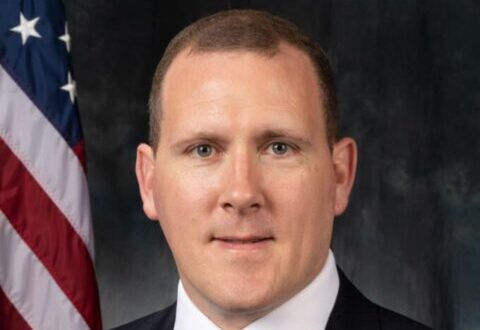
Andrew Smith is a retired U.S. Marshal with over 25 years of distinguished service in federal law enforcement. Based in Washington, DC, he has held several key leadership roles within the U.S. Marshals Service, including Assistant Director for Tactical Operations and Deputy Assistant Director for Investigations.
Throughout his career, Smith was responsible for overseeing complex security operations, managing personnel across multiple jurisdictions, and coordinating interagency and multinational collaborations. His expertise spans a wide range of areas, including witness protection, fugitive apprehension, asset management, and crisis response.
A holder of a Master of Arts in Defense and Strategic Studies from the U.S. Naval War College Andrew Smith has been recognized for his contributions to advancing law enforcement methodologies and integrating technology into security practices. In addition to his work with the Marshals Service, Smith is a Certified Protection Professional (CPP) and a Nationally Registered Paramedic. Since retiring, he has dedicated his time to mentoring the next generation of security professionals and providing strategic advice in the fields of security and crisis management.
What motivated you to pursue a career in law enforcement, specifically with the U.S. Marshals Service?
My motivation stemmed from a deep-seated commitment to public service and a desire to be part of an organization with a long-standing tradition of protecting the American judicial system. The U.S. Marshals Service offered a unique opportunity to engage in diverse, high-stakes operations, from fugitive apprehension to witness protection, which aligned with my passion for making a tangible impact on national security.
Can you describe a particularly challenging operation you were involved in and how your team overcame it?
One of the most challenging operations was a large-scale fugitive apprehension that required coordination across multiple states. The fugitive was highly mobile and had extensive resources. My team and I overcame this by leveraging our network of local law enforcement partners and utilizing advanced surveillance technology. It was a test of patience and strategy, but the collaboration and persistence paid off, resulting in a successful capture.
How do you see the role of the U.S. Marshals evolving in the next decade?
I believe the role of the U.S. Marshals will continue to evolve with an increased emphasis on cybersecurity and protecting critical infrastructure. As technology advances, so do the threats, and the Marshals will need to adapt by incorporating more sophisticated tools and training to handle these emerging challenges while maintaining their traditional roles in judicial security and fugitive operations.
What are some of the key qualities you believe are essential for success in a career with the U.S. Marshals Service?
Integrity, resilience, and adaptability are crucial. The nature of our work demands a high level of moral fortitude and the ability to make quick, sound decisions under pressure. Additionally, the ability to adapt to rapidly changing situations, whether in the field or in response to new threats, is vital for success.
How important is teamwork in the operations you’ve led, and how do you foster it within your teams?
Teamwork is the backbone of any successful operation. In high-stakes environments, no single individual can manage all aspects of a mission. I foster teamwork by ensuring clear communication, defining roles and responsibilities, and encouraging a culture of trust and mutual respect. When everyone knows their role and trusts their teammates, the team functions seamlessly, even under the most stressful conditions.
What advice would you give to someone interested in pursuing a career in federal law enforcement?
My advice would be to focus on building a strong foundation in both physical and mental resilience. Federal law enforcement is demanding, and you need to be prepared for the challenges it presents. Continuous learning, staying informed about new developments in the field, and maintaining a strong ethical compass are also critical. Lastly, don’t underestimate the value of networking and mentorship.
Can you share an experience where technology significantly impacted the success of an operation?
In one instance, we were tracking a fugitive who was skilled at evading traditional surveillance methods. We utilized advanced data analytics and geolocation technologies to predict his movements, which allowed us to preemptively position our teams and capture him with minimal resistance. The integration of technology in this case was a game-changer, demonstrating the importance of staying at the cutting edge of law enforcement tools.
How do you handle the stress and high pressure that come with your line of work?
Over the years, I’ve developed a routine that includes regular physical exercise, mindfulness practices, and maintaining a strong support network of family and colleagues. It’s also important to take time to decompress after particularly intense operations. Keeping a balanced perspective and remembering the broader purpose of the work helps manage the stress that inevitably comes with the job.
What do you consider your greatest achievement during your tenure with the U.S. Marshals Service?
One of my proudest achievements was leading a task force that significantly improved the process for security clearances within the U.S. Marshals Service. We were able to reduce the processing time by 76%, which had a direct and positive impact on our operational readiness and overall efficiency. It was a complex project that required innovation, leadership, and coordination across multiple departments.
Now that you’re retired, how do you continue to contribute to the field of law enforcement and security?
In retirement, I’ve focused on mentoring young professionals entering the field, sharing my experiences and lessons learned to help shape the next generation of law enforcement leaders. I also stay engaged through consulting roles, where I advise on security strategies and crisis management. Additionally, I participate in speaking engagements and write about the evolving challenges and opportunities in the security sector.